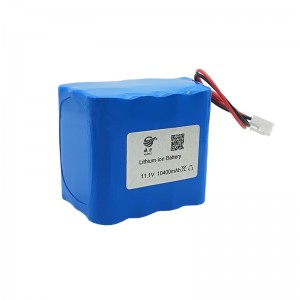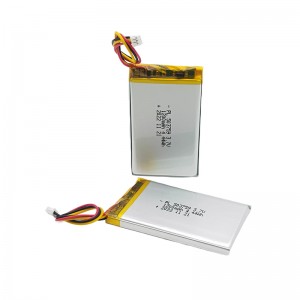The need for lithium battery customization is becoming more evident in today's world of technology. Customization allows manufacturers or end-users to modify the battery specifically for their applications. Lithium-ion battery technology is the leading battery technology in the market, and the demand for customization is continuously growing. Custom lithium-ion battery applications are required to deliver specific power, voltage, and capacity that meet the demands of the application. However, the question often arises on how long it takes to customize a lithium-ion battery pack to meet the specific application requirements.
The approximate time required for custom lithium-ion battery packs varies depending on the complexity of the application requirements. Several important factors impact the custom battery packs' development and manufacture, which determines the time required to complete the process.

Specifications and requirements
The initial consultation with a battery customization team focuses on understanding the requirements and specifications of the application. This step involves discussing the voltage, power, capacity, size, shape, and other application-specific needs. The customization team will also assess other requirements such as current loading, operating environment, and the desired lifespan of the battery to create a custom battery system. The time required for this phase of the customization process will depend on the complexity of the application requirements.
Testing and Initial Samples
After creating the initial design, the team will move on to testing the custom battery configuration. The testing phase is an essential part of the customization process, ensuring that the battery will meet the specified requirements. The testing phase helps guarantee reliable performance, longevity, and safety. Once the tests are complete and a sample unit is manufactured, this sample unit will be tested again. The testing allows the customization team to identify any defects in the battery system and make any final adjustments necessary. Each of these iterations takes time and resources to complete successfully.
Manufacturing and Scaling
Once the testing and initial sample phase have been successfully executed, the team can proceed with manufacturing the custom battery packs. This process involves scaling the production based on the application demands and requirements. The manufacturing process requires time, skilled labor, and adequate resources to produce custom lithium-ion battery packs. The production team will use cutting-edge equipment and tools to produce custom battery packs consistent with the required specifications. In some cases, a few samples will go through final testing and qualification processes to ensure they meet the original specifications, requiring additional time.
Final Thoughts
Custom lithium battery packs have their advantages over standard battery packs. The ability to customize the battery packs to meet specific application requirements eliminates the need for bulky batteries, increases the battery's lifespan, and reduces the frequency of replacements, among other benefits. The approximated time for developing and manufacturing custom lithium-ion battery packs varies depending on the complexity of the application requirements. The entire process usually takes a few weeks and can take longer when additional design iterations and testing are needed, which may add time to the final timeline.

In conclusion, it is essential to work with professional battery customization teams that understand the needs and requirements of the application. They will guarantee that the process is as efficient as possible and deliver the highest quality custom lithium-ion battery packs.
Post time: Jun-12-2023